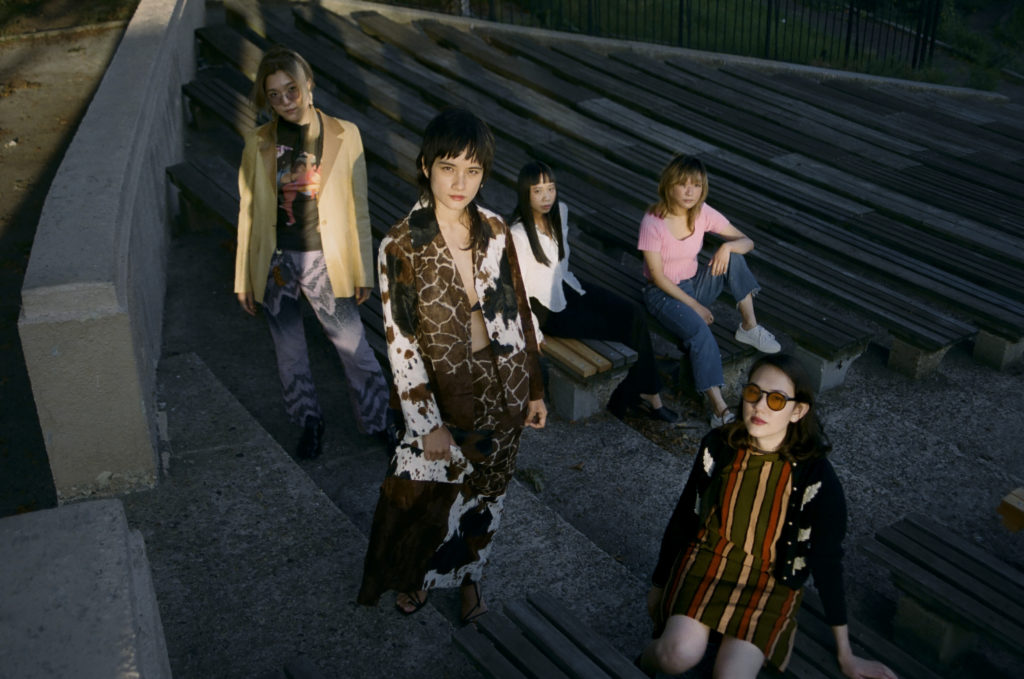How much of the conflict on the Asian continent is fallout from Western colonialism and intervention? Palestine and Israel. Pakistan and India. Proxy wars in Vietnam and Korea. The myths of insurmountable religious, ethnic and social differences between nations, spread and enforced by Western imperialists, persist today. But the moment we notice that these rifts were manufactured and shift our attention from the chasm itself to the cause of the quake, the gaps begin to close.
The countries of what we call East Asia hold on to so much animosity between them over history and cultural differences that, indeed, would have existed in some form even without Western intervention in the region. And yet, despite the often intense nationalism within these countries, Westerners struggle to tell them apart and Asians who grow up in the West often end up making friends of the people their families might consider enemies. In the Asian diasporic communities of the U.S., Chinese, Japanese, and Korean Americans are often joined by Southeast Asians and become Asian Americans together. It’s an odd silver lining of our othering: We are told that we are the same, and find unity and community through sharing that arbitrary label.
The aim of FAR—NEAR is to challenge Orientalist perspectives of Asia and offer space for creatives to share their own narratives. We would not be having a conversation about bringing together creatives from across Asia if boundaries on the Eurasian continent had not been established by Orientalists. We might not have thought to find this community in the first place. The fact is that we have been labeled and defined. There were many painful repercussions. But for better or worse, we are now here, overcoming differences both real and invented, responding to our othering through togetherness. Here are the stories of FAR—NEAR contributors in New York and LA, caught in limbo between East and West, who found themselves somewhere in between.

Urara Muramatsu is a contributing editor of FAR—NEAR, illustrator, and creative strategist at H.P. France, a Japanese fashion company that focuses on independent designers across art, fashion, jewelry and home goods. She directs the fashion/art installations I JUST AM and New York New Work, which have featured designers and artists such as Eckhaus Latta, Chris Habana, Barragan, Maison the Faux, Nosesso LA, Susan Cianciolo, Vaquera, Luar, VeniceW, and Tomi Kono. She moved to NYC with her family when she was 9 years old and works between Tokyo and New York. (@rarainwunderland)
My ethnicity is Japanese. The labels I use for myself depend on the setting. Sometimes I say I’m Japanese-American, for example in work environments within the U.S., in school or with people I know but am not super close with. I’m Asian to people that I’m just getting to know in the U.S. I’m American to the Japanese people I work with — or at least they call me this, even if it’s not a label I would choose for myself. I’m Japanese to my family and friends and when I travel because of my passport. And I’m a New Yorker. I always am a New Yorker in the back of my mind.
Growing up, I was taught that Japanese people are hard-working, unique and spiritual, and polite and respectful to others. After I moved to the U.S. my views on Japan and my people shifted with experience and comparison. I still believe that Japanese people are spiritual and unique, but they can also be proud, depressed, avoidant, and love being in control.
I’ve been mistaken for Korean, Mongolian, Filipina, Chinese, half-Asian. When that happens, I just tell them the truth. I am sometimes mistaken for another ethnicity when being cat-called. In the past I ignored it, but now I let them know.
There have also been times when I am described as a “surprising” or “bad” Japanese. I get more worked up when non-Asians try to dictate how Asians should be, or when non-Japanese tell me how they think Japanese should be, than when I am mistaken for a different ethnicity. I’ve also been told by my own people that I’m very un-Japanese. I’m not sure what people want from me, but I’ve come to the conclusion that I just am. I take it as a good sign when people can’t identify me or are confused by what I look like.
I don’t argue against people from other Asian backgrounds on their views about Japanese culture except when they idolize Japan too much. This happens a lot on the topic of anime/manga fandom. While I’m happy that it is appreciated so globally, it’s problematic — to say the least — that the lolita-complex culture has normalized the fetishization of seemingly underage kids (or “small adults”) of all genders through anime/manga. The history of Japan has been a bloodbath of colonization, war and ignorant or cruel character-deprecatory views of other Asian countries which I definitely don’t agree with and work against. I try to educate myself beyond what I’ve been taught by Japanese textbooks so I can reflect and have discussions with conscience about my Japanese identity and its history.
I find it sweet when I’m interacting with my people in Japan. Oftentimes I get teary-eyed just from simple interactions, like being given an umbrella by people at the teishoku-ya on a rainy day. Or when older ladies in the neighborhood give me a nod and tell me it’s hot outside while they water their flowers. I find that I’m being protected and cared for by my people. I decided to take these sweet moments as they come, because they are as true as the differences between us created by the variance in our exposure to local and global issues and socioeconomic conditions. When I meet other people from Asian diasporas, I feel excited to get to know them and am always curious about their stories. I’d like to know what it was like for them. It’s almost like we promised to meet at some point, and took different routes to get there.
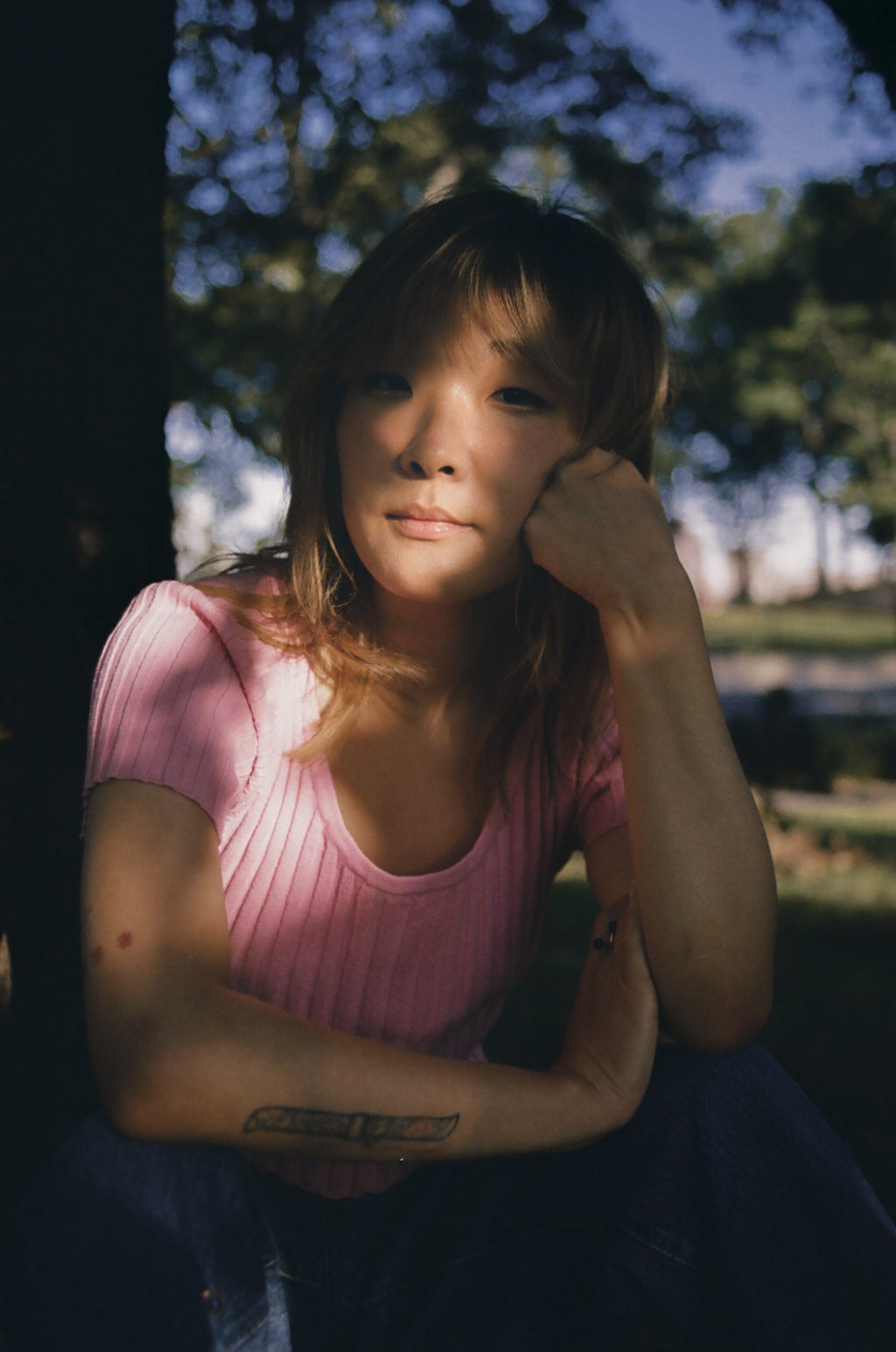
Vivien Lee is a Korean American artist, journalist, poet and contributing writer for FAR-NEAR. She originally graduated from Virginia Commonwealth University with a degree in urban planning, and often thinks about the impact of outer environments on the inner when writing about art, culture, and design. (@yvivlee)
I was born in Georgia but spent the first six years of my life in Seoul. I recently went back for the first time in over 20 years as a gyopo (Korean American) and experienced some culture shock. Mainly I experienced a lot of sexism and there’s a big issue of gender inequality in South Korea. Many people still don’t recognize the gay or trans communities either. I feel like the country possesses an innately progressive spirit, but the older generations and their conservatism can hold that back. I also couldn’t identify with the heavy beauty-industrial complex. But paradoxically when you get to know Koreans, they are and will always be very deep people who care about preserving their culture and that’s what makes them truly beautiful. Because I was managing an underground club/bar, I met creatives from different subcultures. There’s a punk and skate scene I didn’t know about. One common situation for the diaspora community is not feeling entirely accepted in one’s home country once going back but never feeling rooted in the states either, and I’ve experienced that as well.
When I was younger I was taught that growing up in a Korean household or going to a Korean church meant I had to be like other Koreans and it made me think of the culture as very strict and homogenous. During the ‘90s, the term “Asian American” hadn’t actualized for me yet. I don’t think it was until the 2000s that it started showing up on standardized tests at school, as opposed to “Asian/Pacific Islander.” Early on I was always torn between being one or the other; my parents would tell me I’m Korean, not American, and I didn’t know I could be both or what that meant.
I grew up in a predominantly white neighborhood in Virginia and the Asians were either Korean, Chinese, Indian, Vietnamese, or Filipino. During my adolescence I was one of those who tried to fight cultural stereotypes by unsubscribing from my “Asianness” as much as I could, but as an adult I feel more connected to my Korean culture and upbringing.
In that sense I’ve developed more of an affinity towards other Asian Americans as I’ve gotten older and have more Asian friends now than I think I’ve ever had. The food scene in New York has for sure contributed to that. I used to work at several Japanese restaurants so I made Japanese friends that way. I lived with a roommate who is Indian American and we first bonded over making curry together because it was a common dish we shared from our childhood. Even though I grew up eating the Japanese version (karē) I learned it was the British who brought it over to Japan from India originally. So we have white people to thank for that. Food is also a part of different ceremonial traditions across Asia. A friend’s mother cooked an Iranian dinner once to celebrate Nowruz, the Persian New Year and it reminded me so much of how Korean families celebrate Seollal.
I get asked if I’m Japanese or Chinese often, sometimes by other Koreans. At my age now I don’t feel insulted if someone mistakes me for another ethnicity, and I know I’ve done it too. Recently I took a 23andMe test and found out I’m 6% Japanese and there’s traces of Chinese and Mongolian (and some Native American DNA) so I guess we never know if they could be right either.
I talk a lot about my family history and ancestors’ roles in the Korean liberation movement during the Japanese Imperial occupation, and the Japanese government’s unwillingness to apologize for their crimes. I do have Japanese American friends whom I feel comfortable having these discussions with, and it’s partly due to us being part of a younger generation. Our ancestors have all lived through oppression and war so we usually have more things to agree on. Most of my Asian friends acknowledge this part of history so it feels redundant when I talk about it, but when I do I am mostly thinking about my American friends who idolize Japanese culture that aren’t really aware.
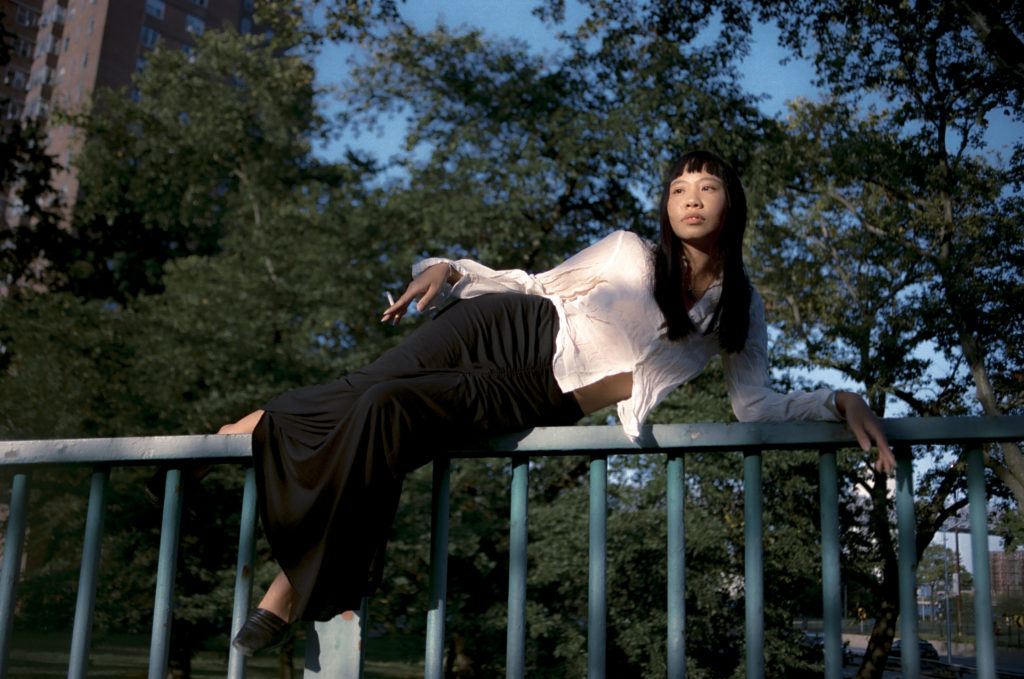
Mika Orotea is an artist working primarily in photography. She is based in New York. (@nmm.0)
I’m Filipinx-American. I struggled to identify as Filipinx in the past. There were many voices that influenced me to create a perceived system of value between Filipinx and other Asian cultures. I definitely felt ashamed towards my own culture because, besides typical stereotypes, there was not much representation or recognition of our rich history in American art and media. There is more to Filipinx culture that I wish could be explored and highlighted.
I am often mistaken as Chinese, Japanese, and/or Vietnamese. It can sometimes be frustrating depending on the situation, but I’ve learned not to take it to heart. I find it fascinating to see how different individuals, Asian or non-Asian, can perceive you. They can draw assumptions through the group of Asians I am around, the way I dress or the type of makeup I choose to express that day, my tan in the summer vs. the paleness of my skin in the winter; even my name is a factor that can definitely influence my mislabeling.
Recently I have been trying to reclaim and learn more about my culture because I rejected it when I was younger. I am currently building a community to understand the Filipinx diaspora. I have not had any heated arguments with my friends, but I have experienced a few instances where friends deny certain historical events or racial experiences that they feel do not apply to them. I enjoy listening to their point of view. We are all accessing our culture through various lenses and filters.
I met many young creatives when I visited the Philippines in 2019. I found that we have a similar view of the Western and strict religious upbringing imposed upon us by contemporary society. However, a language barrier made it difficult for me to connect with a few individuals. I also inherently felt like a foreigner because of the way I present myself and the way I was brought up. It was obvious I could not emulate or understand their mannerisms. Although the one thing that made me feel closely connected to the people and to the culture is my love for and familiarity with Filipinx food.
In comparison to my mixed, Asian and non-Asian diasporic friends, we collectively understand what it means to be treated as an “outsider” and to be fetishized. Funnily enough we all have similar feelings of guilt from our parents that left their country with the promise of the “American Dream.”
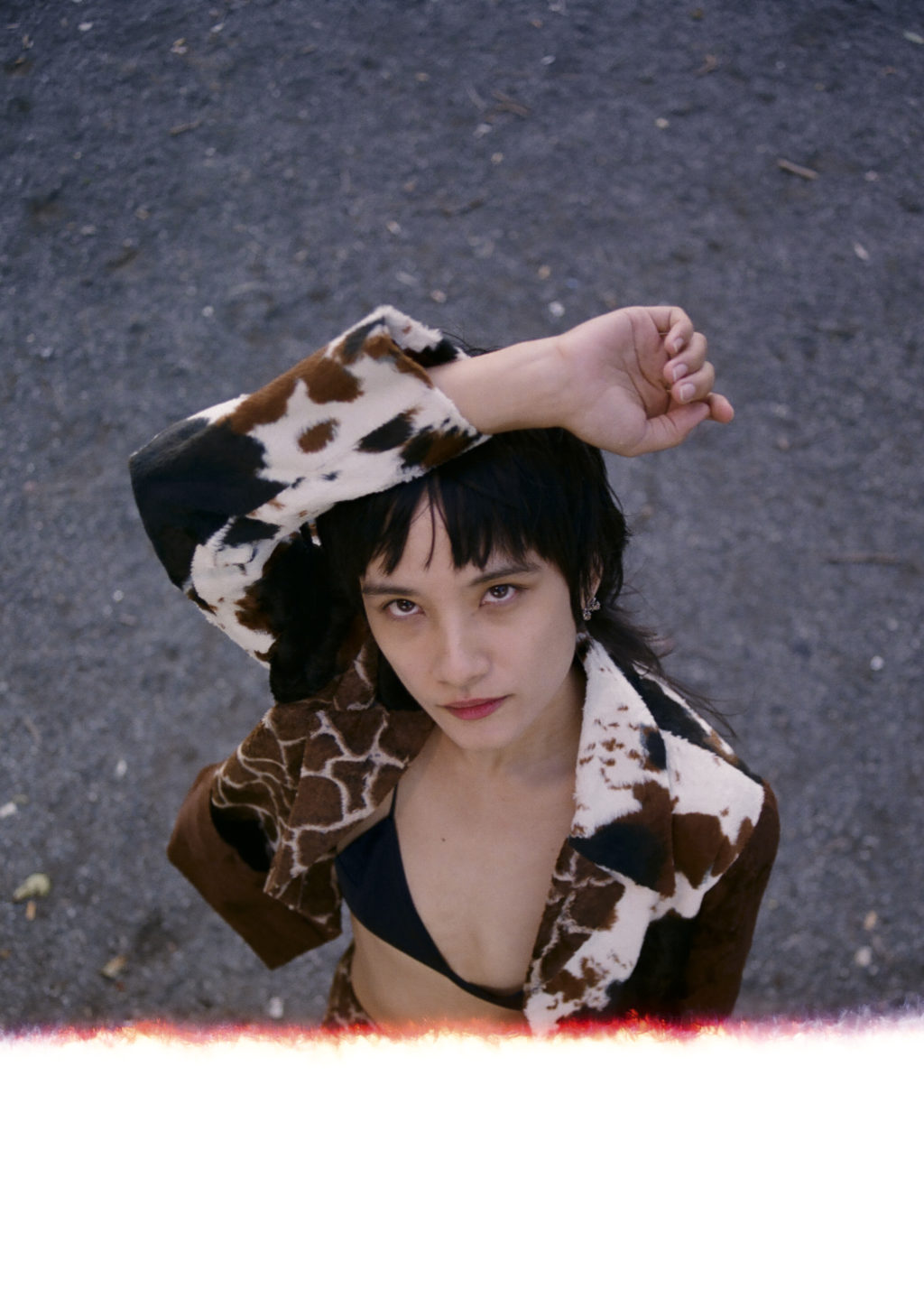
Lulu Yao Gioiello is the creative director and editor-in-chief of FAR-NEAR and works as a multidisciplinary creative director. With a holistic approach to film and photo stories, she brings multi-cultural and artistic insight to dive deeper than what is readily available. (@kittycitykid)
My father is Italian-American from the Bronx and my mother is Taiwanese. I identify most with being from New York. I grew up with my father, so I didn’t have any direct connection to my Taiwanese side as a child, though he brought me weekly to primarily Indian and Filipino Yogic and Korean Daoist group meetings. In middle school, most of my friends were from Chinatown and my father remarried to a Thai woman. I feel like I identified often with any Asian community I was introduced to.
At 19 I took my first trip to Taiwan to meet my mother and her side of the family. Since starting FAR–NEAR and spending more time there, I’ve come to identify more with the culture. Strangely, there are similarities I find between myself and Taiwanese friends or family, even though I was not brought up the same way. I sometimes wonder if genetics do have an influence on personality. Being of mixed heritage, people often like to guess my “makeup.” I’ve felt dehumanized being called “exotic” and it definitely affected how I felt about myself in my teenage years. Because I’m considered darker skinned than most East Asians (especially in the summer), I’ve been assumed to be Tahitian or Hawaiian and even called a “forest creature.” While studying in Europe I was often asked why I have “these eyes” even though my name is Italian. In the beginning, I felt forced to take these as compliments, as they were usually coming from men as a way to flirt. As I got older and better understood the nuances of labeling others, I was better able to stick up for myself and either dismiss the person altogether or correct them to my personal background.
Growing up, I definitely surrounded myself with people of other mixed heritage, though not necessarily of Asian descent. I find that overall I feel the most similar to people who were raised with multiple cultures, whether that means having moved around a lot as a child, or having an ethnically diverse family. I think there’s a specific place that most mixed-cultured individuals find themselves in. I call it the “insider/outsider.” In some ways it’s definitely a privilege — we are granted access into multiple communities in a way most people aren’t. At the same time, I think a lot of us feel like drifters. We are never fully comfortable in one culture, nor are we completely accepted. There’s always a bit of an arms-width distance between us and them. Sometimes it’s a language barrier, sometimes it’s cultural, sometimes it’s because of unfair media representations that promote non-Asian features as the ideal. When I was spending some time in Tokyo, a modeling agency told me I was “too Asian” to be represented by them. It’s definitely strange to have some people tell you, “you’re too Asian” while others might say “you’re not Asian enough.” Especially when it’s not in a Western country. I think throughout my life I’ve looked for people who share this similar experience. I’ve heard someone say, “you’re only Asian when not in Asia.” There is definitely this sense of belonging when I visit any Asian city, even outside of Taipei. There’s a sort of familiarity I get with the space and new friends or family, regardless of how much time I spend with them or if we can fully communicate. It almost feels like this understanding or non-verbal intangible form of communication. An unspoken, unlabeled understanding of who we are and how we relate.
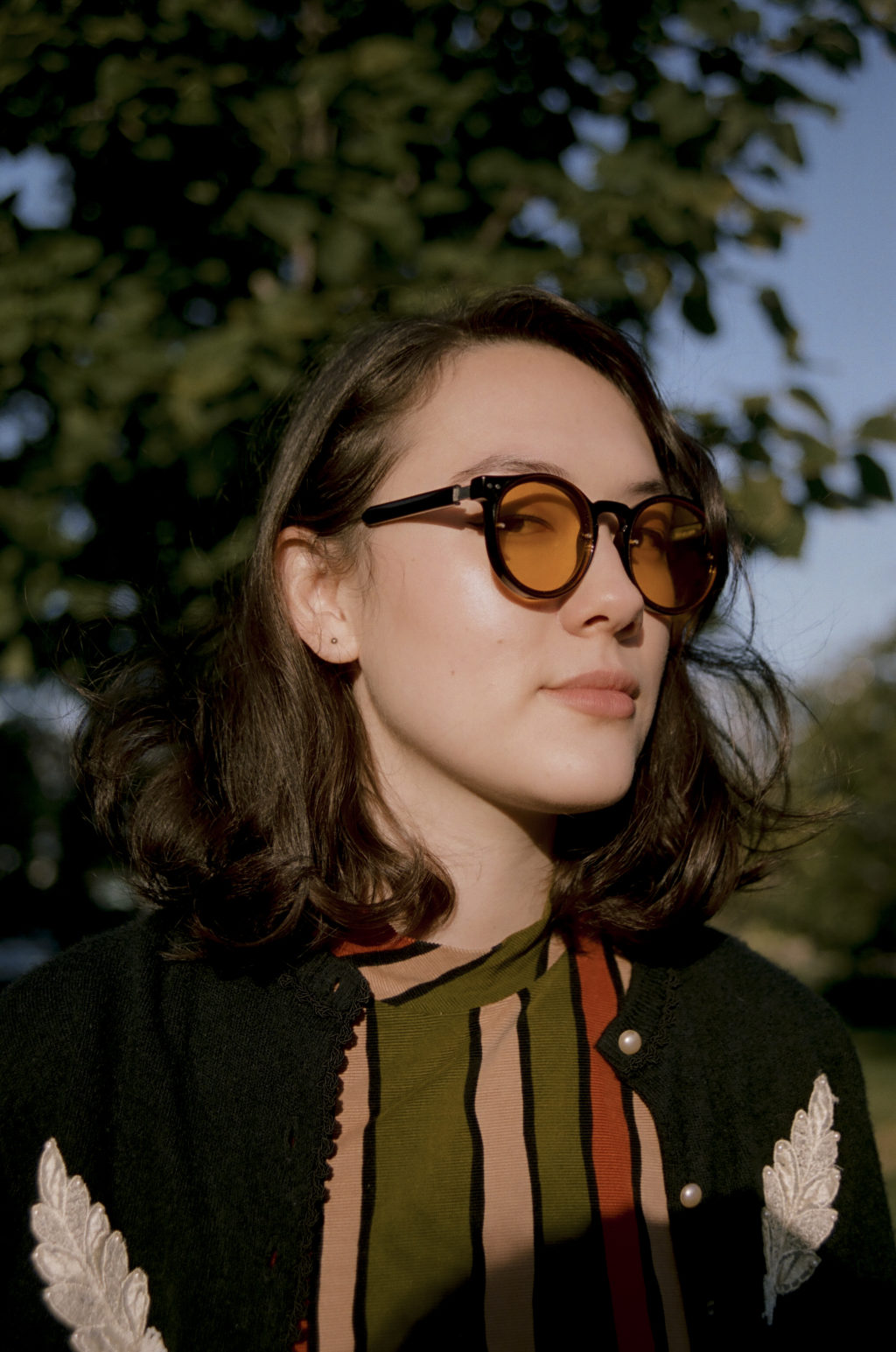
Ariana King is senior editor of FAR—NEAR, a writer, journalist and former United Nations correspondent. She was born and raised in NYC and lived in Tokyo for four years as a student. She is of Korean and Euro-American descent. (@arinoana)
I’m half Korean and half white. My mother was born in Korea and adopted at the age of 5 by a white American family in a very white town in Massachusetts. I didn’t grow up with Korean culture, although my family took occasional trips to Koreatown restaurants. When I was 8, I was briefly enrolled in a Saturday school for Korean language. It didn’t work out. But because I looked (full) Asian, I identified as Asian. Learning about Asia through pop culture, I latched onto Japanese culture. An opportunity turned up, and I started studying Japanese with a tutor when I was 10 years old. I moved to Tokyo for undergrad and spent four years after graduation working for a Japanese newspaper in New York. People are generally shocked to learn that I’m not Japanese. I often think that if K-pop had been as big when I was a kid as it is now, I’d be fluent in Korean and not Japanese.
I’ve always been adamant about correcting people when they mistake me for being another ethnicity. Growing up, I’d get cat-called with “nihao” or “konnichiwa,” but never “annyeong.” It bothered me that Korea was forgotten. I’m always torn on how to respond when I’m mistaken for being Japanese. I usually choose to go through the whole explanation. You really can’t ever assume someone’s identity.
When I was living in Japan I met a few people who hated Koreans. It was eye-opening for me, coming from New York where Chinese, Koreans, and Japanese people belonged to one group: Asians. These Korea-haters (read: racists) reassured me that I was not like those other Koreans. I was half white, and an American, so it canceled my Korean-ness. I’ve since become quite vocal when it comes to calling out racism in Japan, especially because so many believe it doesn’t exist. I truly love Japan, and am honored to have been so welcomed there. Japanese people joke about how “Japanese” I am, and we have a good laugh together.
But because I am Korean by blood — even if I have no cultural connection to the country at all, I hurt when I hear words of hate against Koreans as if they were meant for me. I felt a sense of belonging somehow hearing about Japan’s ethnic zainichi Korean population. Our experiences are so different, yet somehow familiar.
At home in New York, I find I am most able to connect with mixed-race people, Asian Americans and third culture kids. People whose identities aren’t straightforward. Even though I didn’t learn Asian culture from my parents, the experiences I faced just looking Asian overlap so much with other Asian people. We share our experiences getting cat-called by men with Asian fetishes, told to “go back to China” or complimented on our English abilities. We’re brought together through sharing our struggles, but that’s always been how some of the strongest bonds are formed.
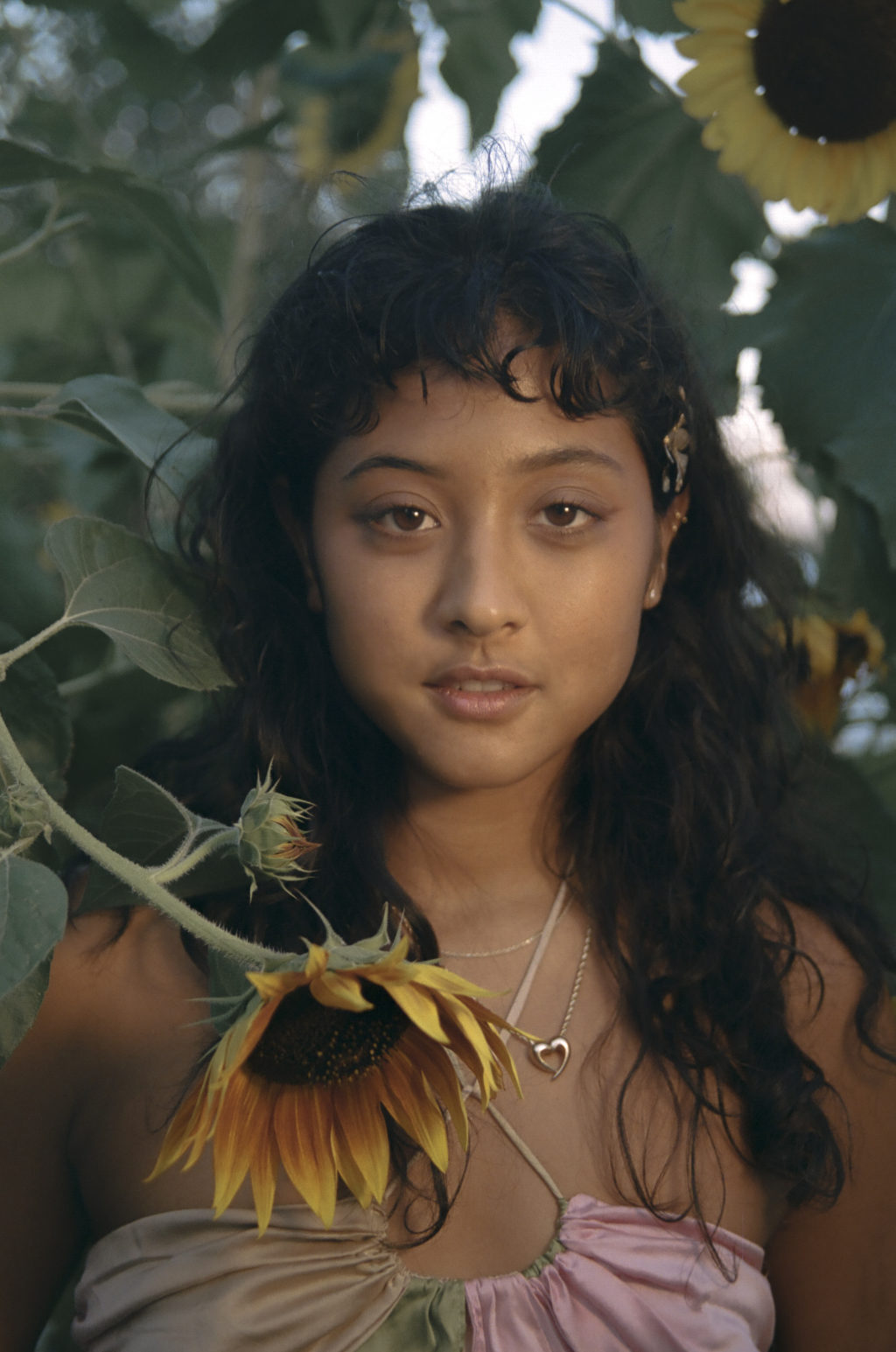
Courtney Yates is a photographer, director and creative. She currently photographs full time but spent the previous two years working with brands as a creative strategist and writer. She is interested in themes of emotional lineage and healing through documentation. (@courtsyy) – above image shot by Lulu Yao Gioiello
My ethnic background is Chinese (by way of Malaysia) and African-American. I use the label of Black and Chinese for myself.
Growing up, I was taught about Malay culture through the food my mom cooked and the habits and superstitions she retained from her life in Malaysia. I was exposed to Malaysian cartoons and my mom’s stories. But none of my mom’s family live in the U.S. so it was a relatively distant culture for me and still is. I was exposed to and lived in a community with many other Asian families from all different countries throughout my social life growing up. The Asian population in my hometown is large and I was certainly exposed to a lot of cultural points, particularly of East Asian cultures, because of that. The smells, sensations and behavioral leanings of my Asian friends and their homes are foundational for me. That being said, because my mom does not identify as Chinese (she was adopted by a Malay family at birth) and because we didn’t have a community of Malay people in Michigan, I felt separate from other Asian cultures on a more intimate level. I believed those cultures to be separate from mine but also to be valuable, intricate and strong.
I do sometimes discuss cultural or historical issues with friends. There aren’t arguments — it’s still an exploration for me. It’s a newer thing for me to even unpack that part of my identity as both aspects of my ethnic background have been buried under ambiguity for so long. In general, I feel very different from my other Asian friends.
Being in Asia has always been a positive experience for me. In Malaysia, I fit in quite well because of the way I look. I feel that I am seen more as an interesting American person when I’m there. Being around Asian Americans can sometimes make me fearful because I am hesitant about whether I’ll be accepted or taken seriously.
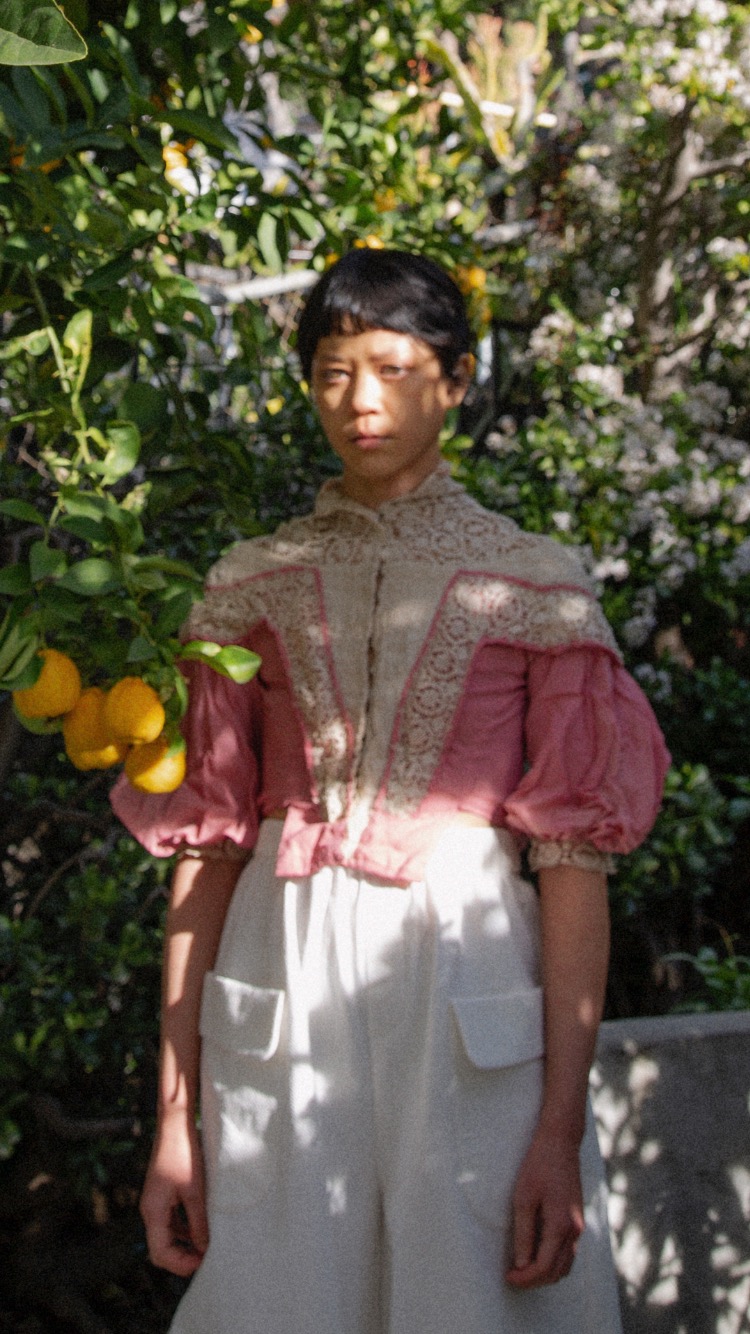
Thai Lu is a chronically-ill artist, designer, and community organizer. Today her practice is centered on the social, cultural, psychic, and physical effects of chronic illness. By drawing from personal experience, Thai examines the intersections of Western bio-politics, Southeast Asian diaspora, interdependence, and metamorphosis. She is also a founding member of Sick In Quarters (SIQ), a collective of disability activists, and is a FAR—NEAR west coast editor. (@littleom)
As a chronically ill neurodivergent non-binary queer Vietnamese-American, how my intersectional existence fits into my cultural heritage is a an ongoing work in progress. Like other events, the details of any person’s life may be conceptually organized, patterned, and thus understood, explained and managed — making meaning of this existence — but a voice can only articulate what it comprehends. These words will likely fail me, but I’ll persist anyway: initiating a process of carving significance.
Being a refugee is very different from immigration. Immigration is a choice, whereas relocation as a refugee is a matter of necessity for survival. When you enter this country as a refugee, assimilation is required — not solely by this new culture, but also of/by the original culture; where conceptions of success are materially defined and failure could result in shame for the entire family. Blending in is the goal, but there is also pressure to embody an ideal representation of the original culture.
Separate from this, refugees arrive in “anywhere, USA” and while they’re safe from bombs, they are not safe from racism and hate crimes. How exactly does a stranger from a different shore “blend in,” within a culture marked by racism?
Generally speaking, there aren’t many countries where marginalized identities are acknowledged and accepted as deserving of the same respect and dignity as the rest. As the daughter of Vietnamese refugees, the word ‘displaced’ covers a lot of ground here. Combined with disability, neurodivergence, and gender divergence — do I fit or belong anywhere?
Because of the fairness of my skin, it’s often assumed that I’m mixed-race and half white. I’m used to it now, but have lost patience for those unwilling to empathize with the complexity of ethnicity.
I think it’s important to have these conversations, but usually find that I’ve been misunderstood again and there is sometimes competitiveness along with an assumed hierarchy of cultures (i.e. colonization).
It’s often difficult for me to elaborate on my lived experience because most people aren’t willing to take the time to appreciate the nuance and intricacies of existence. Ableism, internalized and externalized, overshadows these discussions and I struggle to effectively communicate across neurotypes, with my neurotypical peers. The most organic way for me to communicate is in the visual and somatic realms, through my art.
We’re privileged to live in a time where interracial relationships have become more accepted — most children in the future will be of mixed backgrounds. In my work, I’m striving to build bridges between communities, celebrating both our similarities and differences. I want weirdo multicultural kids in rural America to feel comforted knowing they’re not alone in this world.
When I was 17, my mom saved up for a family trip to take my sister and I to Vietnam, Laos, and Thailand. I remember being so excited to go back to “the motherland,” to be surrounded by other jungle babies like myself and to experience these cultures firsthand — only to arrive as a privileged American in their eyes. While disorienting in that respect, it was still very grounding to see the same dirt roads with the same neighbors, where my mom grew up in Laos. This trip was actually her first time being in Vietnam because both of my Vietnamese parents were born and raised in Laos, their parents having fled Vietnam due to war.
Admittedly, I grew up feeling disoriented and still do. I know I’m not alone in this feeling. I would like to experience more compassion in relation to this, to find a shared footing with others who share similar experiences.
How can we better locate ourselves? Where have we come from? Where are we going? Where are we? We can only listen, resonate to affinities, send out questions, listen for answers, send out more questions. We can only continuously echo-locate, re-locate ourselves, and practice compassion.
Courtney Yates
Ariana King
